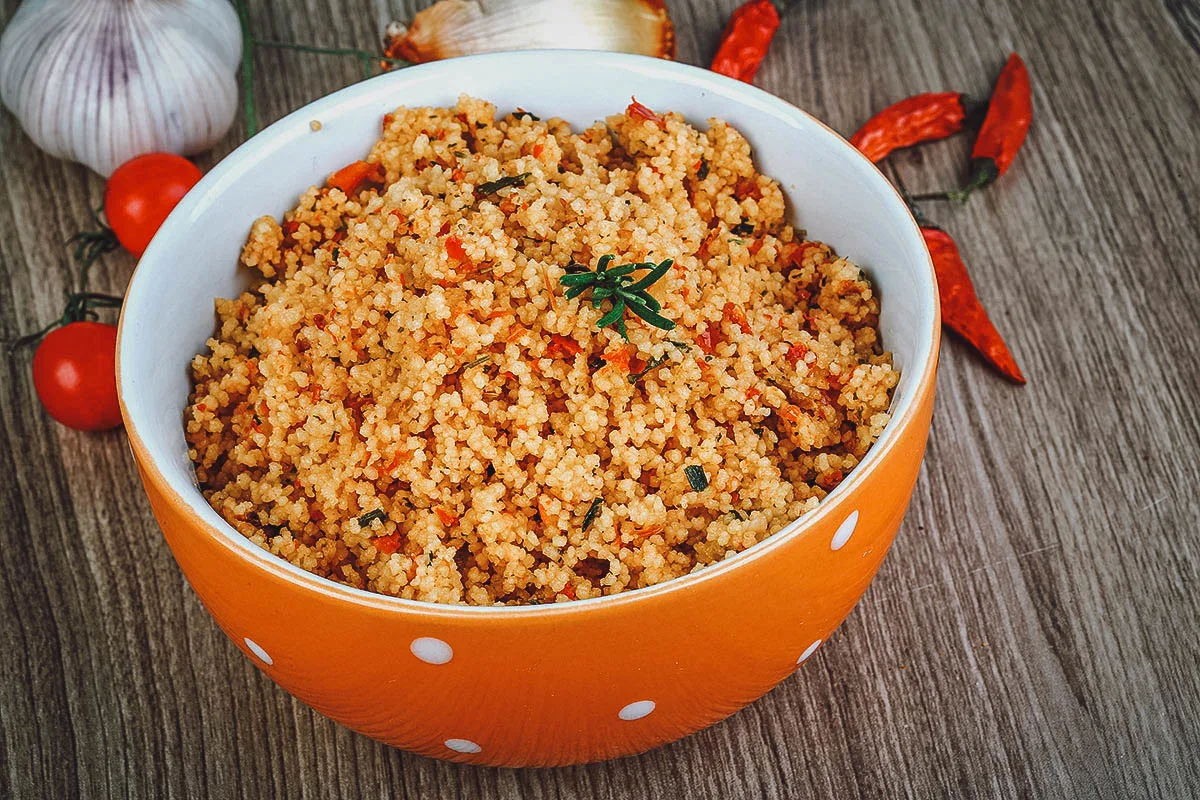Discover the Flavors of Mediterranean Food: A Trip With Health and Preference
The Mediterranean diet plan, commemorated not just for its abundant tapestry of flavors but also for its countless health benefits, invites a more detailed assessment of its origins and key active ingredients. With a structure improved fresh vegetables, whole grains, and healthy and balanced fats, this food exemplifies an unified balance in between taste and nutrition. As we discover preferred dishes and their nutritional benefits, one need to think about just how these elements add to total wellness. What makes this culinary practice attract attention to name a few dietary patterns? The solution depends on its distinct method to food and health and wellness.
Beginnings of Mediterranean Cuisine
Usually considered one of one of the most vivid and diverse cooking customs, Mediterranean food has its beginnings deeply rooted in the historical and geographical context of the area. Encompassing the cooking practices of nations bordering the Mediterranean Sea, such as Italy, Greece, Spain, and Turkey, this food has evolved over centuries, affected by a convergence of societies, trade, and environment.
The old human beings of the Mediterranean, including the Greeks, Romans, and Phoenicians, played an essential function in forming these culinary practices. The exchange of active ingredients and techniques among these societies promoted a rich tapestry of tastes and cooking methods. Location likewise considerably influenced the diet regimen; for circumstances, coastal areas leaned greatly on seafood, while inland areas highlighted the usage of grains, vegetables, and animals.
In addition, the region's environment, identified by cozy, completely dry summertimes and moderate, wet winter seasons, promoted the cultivation of a broad range of vegetables, herbs, and fruits. This farming bounty added to a food that celebrates freshness and seasonality. Consequently, Mediterranean food stays not only a reflection of its history yet additionally a testimony to the withstanding link in between food, society, and the setting.
Key Active Ingredients and Their Benefits
The rich history of Mediterranean cuisine is mirrored in its essential active ingredients, which are essential to developing the region's distinctive flavors. Olive oil, a foundation of this cooking practice, supplies numerous health benefits, including heart health promotion and anti-inflammatory residential or commercial properties. Rich in monounsaturated fats, it functions as a healthier option to saturated fats.
Fresh vegetables such as tomatoes, cucumbers, and bell peppers are celebrated for their dynamic flavors and nutritional value. They are loaded with minerals, vitamins, and anti-oxidants, contributing to overall health and well-being. Legumes, consisting of lentils and chickpeas, give a durable resource of protein and fiber, making them important for a balanced diet.

Popular Mediterranean Dishes
Fascinating diversity characterizes prominent Mediterranean meals, each offering an one-of-a-kind blend of tastes and cultural impacts (mediterranean food in las vegas). The region's cooking landscape is abundant with staples such as hummus, a velvety mix of chickpeas, tahini, and garlic, frequently offered as a dip with pita bread. Another standard is the Greek moussaka, a split casserole of eggplant, ground meat, and béchamel sauce, showcasing the harmony of tastes and appearances

Seafood additionally plays a popular duty, as seen in dishes like paella from Spain, which integrates rice, saffron, and a selection of seafood, mirroring coastal influences. For those with a pleasant tooth, baklava, a pastry made from layers of filo dough, nuts, and honey, supplies an indulgent and abundant Our site experience.
These recipes not only exhibit the cooking artistry of the Mediterranean however additionally work as a testament to the area's abundant background and cultural exchanges.
Health And Wellness Conveniences of Mediterranean Diet
Various researches have actually highlighted the health benefits connected with the Mediterranean diet regimen, which is identified by a high intake of fruits, vegetables, whole grains, and healthy fats, specifically olive oil. This nutritional pattern has been linked to a decreased danger of persistent illness, consisting of heart condition, diabetes, and certain sorts of cancer. The emphasis on plant-based foods offers necessary nutrients and anti-oxidants, which add to total wellness and health.
Research study has demonstrated that adherence to the Mediterranean diet plan can enhance cardiovascular health by reducing you can try these out blood stress and cholesterol levels. Additionally, the diet regimen's anti-inflammatory homes may aid in handling weight and lowering the danger of obesity-related conditions. The inclusion of fatty fish, abundant in omega-3 fatty acids, supports mind health and wellness and cognitive function.
In Addition, the Mediterranean diet plan promotes a balanced method to consuming, encouraging mindful usage and social communications during dishes, which can boost psychological wellness and total top quality of life. Its diverse flavors and nutrient-dense components make it a enjoyable and sustainable dietary selection, cultivating long-term adherence and many wellness advantages (mediterranean food in las vegas). Embracing this diet plan might result in a more lively, much healthier way of living

Tips for Incorporating Mediterranean Flavors
Including Mediterranean flavors into your dishes can change your eating experience while gaining the diet regimen's health and wellness advantages. To begin, make use of a variety of fresh natural herbs and spices, such as rosemary, oregano, and basil, to elevate the preference of your dishes. These fragrant enhancements not just improve flavor however also enhance nutritional value.
Following, focus on integrating standard components like olive oil, tomatoes, garlic, and lemon. Usage additional virgin olive oil as your main food preparation fat, showering it over salads or utilizing it for sautéing veggies. Additionally, tomatoes can be enjoyed in numerous forms, from fresh salads to roasted dishes, supplying necessary vitamins and article source anti-oxidants.
Whole grains, such as farro, quinoa, and bulgur, are likewise crucial components of the Mediterranean diet plan. Alternative refined grains with these nutrient-dense choices to supply fiber and a rewarding texture. Don't fail to remember to consist of a variety of beans, such as lentils and chickpeas, which offer as exceptional resources of plant-based protein.
Verdict
The exploration of Mediterranean cuisine reveals a rich tapestry of flavors and nutritional advantages that add to total wellness. Including Mediterranean recipes right into day-to-day diet regimens supplies countless wellness benefits, making it an engaging option for those seeking to improve their eating habits.
The Mediterranean diet regimen, commemorated not just for its rich tapestry of flavors but also for its countless wellness advantages, invites a closer examination of its beginnings and vital active ingredients.Many research studies have highlighted the health advantages connected with the Mediterranean diet, which is characterized by a high consumption of fruits, veggies, whole grains, and healthy and balanced fats, specifically olive oil.Integrating Mediterranean flavors right into your dishes can transform your eating experience while enjoying the diet's wellness benefits.The exploration of Mediterranean food exposes a rich tapestry of tastes and nutritional advantages that contribute to overall wellness. Incorporating Mediterranean recipes right into daily diet regimens provides numerous wellness benefits, making it a compelling selection for those seeking to boost their eating behaviors.